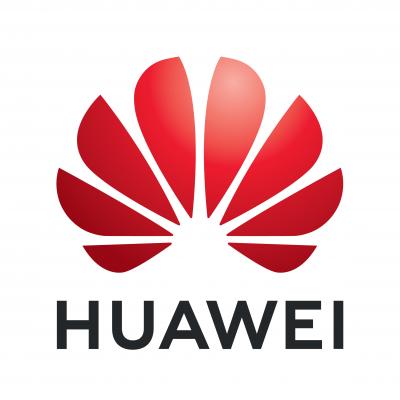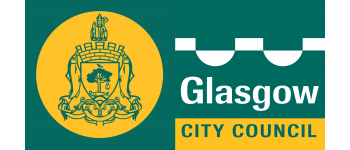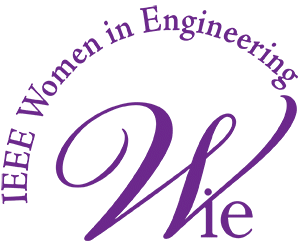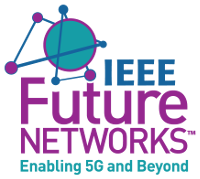Intelligent Communications for Tactile and Multimodal Services in 6G: Requirements, Standardisation, and Challenges
Wednesday, 29 March 2023 11:00-12:30 Lomond Auditorium
Moderator: Mona Ghassemian (Huawei Technologies)
Panelists:
-
Yue Wang (Samsung): 6G - the next hyper-connected experience for all
-
Adnan Aijaz (Toshiba): Multi-service Edge-intelligence for Time-critical Control over Wireless
-
Rich Walker (Shadow Robot): Wireless communications and remote robotics: needs, challenges and opportunities
-
Reza Nejabati (University of Bristol): 6G Autonomous network with
predictive performance and distributed intelligence -
Leila Musavian (University of Essex): Multifold trade-offs in xURLLC: Challenges to strike the right balance?
-
Toktam Mahmoodi (King's College London)
Increasing demands of remote operation in post pandemic era mainly in healthcare and automation systems have driven further developments of the Tactile Internet (TI) (IEEE 1918.1). The Tactile Internet facilitates multimodal communication and perception (such as sight, voice, haptic, and emotion) among humans and machines/robots to insure high visual quality, low motion-to-photon latency, and real-time tactile and control experience over wireless networks.
While 5G ultra-reliable low-latency communications (URLLC) capability is well aligned with the TI low latency requirements, TI applications in different vertical industries have unique requirements on top of URLLC, such as global connectivity, high mobility, low jitter and multimodal synchronicity. The panel discusses what the current communication systems fall short to satisfy these requirements and needed to be overcome in 6G for future multimodal communication solutions and to be ready for the full vision of the Tactile Internet.
Discussion topics including:
-
Requirements: How to define, test and measure different verticals’ future communication requirements?
-
Standards: route for 6G research outputs for standardisation and challenges, cross SDOs collaboration for harmonised and interoperable standards
-
Challenges: including sustainability, energy efficiency, social innovation and other key topics
This panel is endorsed by one6G association (https://one6g.org/)
Biographies:
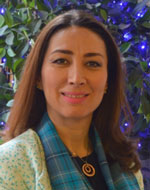 Mona Ghassemian, Huawei Technologies (Moderator)
Mona Ghassemian, Huawei Technologies (Moderator)
Mona Ghassemian has over 20 years of experience in the wireless and telecom research in industry and academia. She currently works as 6G principal expert on industry vertical, working on strategic R&D roadmap of key technologies relevant for next generation mobile communication system design at Huawei Advanced wireless Technology Lab. Prior to her current role, in her senior manager position at InterDigital Inc, she led a research team on the next generation networking. She worked as a principal research scientist at British Telecom Research and Technology with a focus on future networks and security. Prior to her industry roles, she worked as a lecturer and senior lecturer at KCL, Greenwich and SBU supervising over a 100 postdocs, PhD and MSc researchers. She has published over 70 papers, 13 patents, 2 book chapters and several contributions to 3GPP, IEEE and IETF standard organisations. She is a member of IEEE SA 1918.1 Tactile Internet WG and the IEEE UK & Ireland section past-chair.
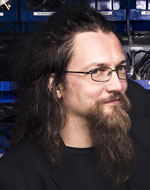 Rich Walker, Shadow Robot
Rich Walker, Shadow Robot
Rich is one of the Directors at Shadow Robot as well as serving as elected director for the European associations euRobotics and Adra. He has been active in the robotics community since the early 90's and is best known for his work with dexterous robot hands.
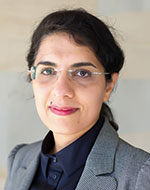 Leila Musavian, University of Essex
Leila Musavian, University of Essex
Prof. Leila Musavian received her PhD degree in Telecommunications from Kings College London, UK. She is currently working as a professor of Wireless Communications at the School of Computer Science and Electronic Engineering, University of Essex. Prior to that, she was Deputy Pro-Vice-Chancellor for Research at the University of Essex and also a Reader in Telecommunications at CSEE, University of Essex and a Senior Lecturer/Lecturer at InfoLab21, Lancaster University (2012-2016). She was Research Associate at McGill University between 2011-2012, research associate at Loughborough University, UK (2009-2010) and post-doctoral fellow at INRS-EMT, Canada (2006-2008). She has also worked as the Deputy Director of Research of the School of Computer Science and Electronic Engineering, University of Essex (2017-2019). Her research interests lie in Radio Resource Management for Low latency communications, 6G, Energy Harvesting and SWIPT, Semantic Communications, Security, Green Communication and cross-layer design for delay QoS provisioning. She is currently Editor for IEEE Communications Surveys & Tutorials and has been an Editor of IEEE TRANSACTIONS OF WIRELESS COMMUNICATIONS.
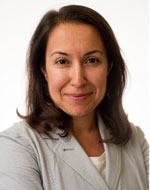 Toktam Mahmoodi, King’s College London
Toktam Mahmoodi, King’s College London
Toktam Mahmoodi [S’06, M’09, SM’16] is a Professor of Communication Engineering and Director of the Centre for Telecommunications Research (CTR) in King’s College London. Previously, she was visiting research scientist at F5 Networks, research associate in Imperial College London, Mobile VCE researcher, and telecom R&D engineer. Toktam is and has been involved in number of European FP7 and H2020 projects on 5G mobile networks, vehicular communications, and Software-defined Networking. Her research focuses on the areas of mobile and cloud networking, and includes ultra-low latency networking, network virtualization, mobility management, network modelling and optimization. She has contributed to the ETSI, IETF and 3GPP standards, and has played an active role within 5GPPP in defining 5G vision for vertical industries. She has also served on number of editorial boards, and the roles include the executive editor of Transactions on Emerging Telecommunications Technologies, series guest editor of JSAC series on network softwarization, area editor of IEEE Communications Standard Magazine on management & orchestration, and editor of IEEE communication letters. Toktam served as general chair of ICT 2021, and has been technical committee chair and member of various IEEE ComSoc conferences.
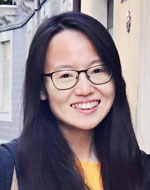 Yue Wang, Samsung
Yue Wang, Samsung
Yue Wang is the Head of 6G Research at Samsung UK. She leads a team of researchers to identify and develop mid-to-long term technologies and technology enablers for 6G networks, 6G system architecture and AI for 6G. Prior to this role, she led a team on Network AI, where her team delivers research, technologies, and proof-of-concepts of network operation and management using AI. She has also been the delegate of O-RAN and ETSI ENI (Experiential Networked Intelligence), and has been the Secretary and Rapporteur of ETSI ISG ENI in 2017-2020.
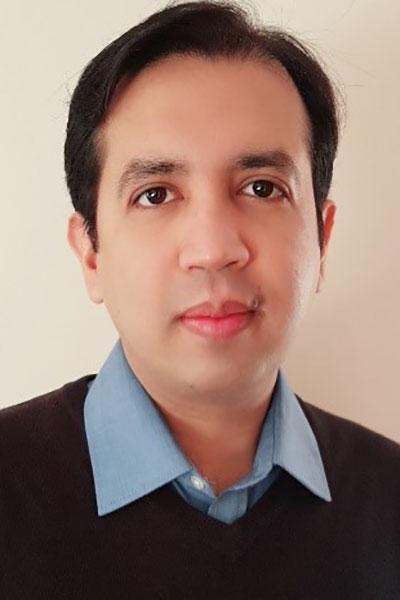 Adnan Aijaz, Toshiba
Adnan Aijaz, Toshiba
Adnan Aijaz (M’14–SM’18) is a Principal Researcher Engineer with the Telecommunications Research Laboratory of Toshiba Research Europe Ltd. He has over 7 years of experience in the wireless domain working in industrial, academic and corporate research sectors. He received the Ph.D. degree in Telecommunications Engineering from King’s College London, UK. His research broadly focuses on design and optimization of wireless networks. At Toshiba, he is actively engaged in industrial wireless research focusing on Bluetooth, 6TiSCH, WLAN, and 5G technologies. He is an associate editor for the IEEE Internet of Things Journal and frequently serves as a TPC member for various flagship IEEE conferences. He is a senior member of IEEE.
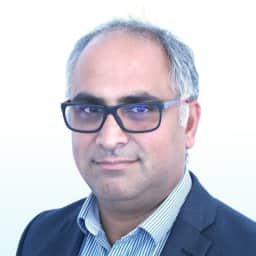 Reza Nejabati, University of Bristol
Reza Nejabati, University of Bristol
Prof. Reza Nejabati is currently a chair professor of intelligent networks and head of the High-Performance Network Group in the Department of Electrical and Electronic Engineering in the University of Bristol, UK.He is also a visiting professor and Cisco chair in the Cisco centre for Intent Based Networking in the Curtin University, Australia. He has established successful and internationally recognised research activities in “Autonomous and Intent Based Networks,” as well as “Quantum Networks.” His research received the prestigious IEEE Charles Kao Award in 2016 and has done important contributions in 5G, Smart City, Quantum Communication, and Future Internet Experimentation. Building on his research, he co-founded a successful start-up company (Zeetta Networks Ltd). It has currently 25 employees and £6m VC and external funding.
On the Road to Quantum Communications
Tuesday, 28 March 2023 16:00-17:30 Alish 1
Moderator: Lajos Hanzo (University of Southampton)
Panelists:
-
Josep M. Jornet (Northeastern University)
-
Mohsen Razavi (University of Leeds)
-
Peiying Zhu (Huawei)
As a benefit of substantial global investment into quantum engineering, in recent years 'quantum leaps' have been made in the field of quantum-domain information processing, communications and computing. Following a brief introduction to this alluring research subject, in this panel we will discuss the pros and cons as well as challenges and speculate about the roadmap of rolling out the quantum Internet of the future...
Biographies:
Lajos Hanzo, University of Southampton (Moderator)
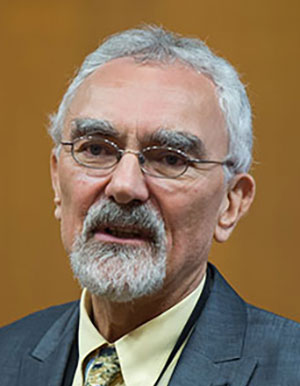 Lajos Hanzo (FIEEE'04) received his Master degree and Doctorate in 1976 and 1983, respectively from the Technical University (TU) of Budapest. He was also awarded the Doctor of Sciences (DSc) degree by the University of Southampton (2004) and Honorary Doctorates by the TU of Budapest (2009) and by the University of Edinburgh (2015).
Lajos Hanzo (FIEEE'04) received his Master degree and Doctorate in 1976 and 1983, respectively from the Technical University (TU) of Budapest. He was also awarded the Doctor of Sciences (DSc) degree by the University of Southampton (2004) and Honorary Doctorates by the TU of Budapest (2009) and by the University of Edinburgh (2015).
He is a Foreign Member of the Hungarian Academy of Sciences and a former Editor-in-Chief of the IEEE Press. He has served several terms as Governor of both IEEE ComSoc and of VTS.
He has published 2000+ contributions at IEEE Xplore, 19 Wiley-IEEE Press books and has helped the fast-track career of 123 PhD students. Over 40 of them are Professors at various stages of their careers in academia and many of them are leading scientists in the wireless industry.
He is also a Fellow of the Royal Academy of Engineering (FREng), of the IET and of EURASIP. He holds the Eric Sumner Field Award.
Peiying Zhu, Huawei
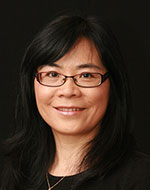 Dr. Peiying Zhu, Senior Vice President of Wireless Research, is a Huawei Fellow, IEEE Fellow, and Fellow of the Canadian Academy of Engineering. She is currently leading 5G and beyond wireless research and standardization in Huawei. The focus of her research is advanced radio access technologies. She is actively involved in 3GPP and IEEE 802 standards development. She has been regularly giving talks and panel discussions on 5G vision and enabling technologies. She led the team to contribute significantly to 5G technologies.
Dr. Peiying Zhu, Senior Vice President of Wireless Research, is a Huawei Fellow, IEEE Fellow, and Fellow of the Canadian Academy of Engineering. She is currently leading 5G and beyond wireless research and standardization in Huawei. The focus of her research is advanced radio access technologies. She is actively involved in 3GPP and IEEE 802 standards development. She has been regularly giving talks and panel discussions on 5G vision and enabling technologies. She led the team to contribute significantly to 5G technologies.
Prior to joining Huawei in 2009, Peiying was a Nortel Fellow and Director of Advanced Wireless Access Technology in the Nortel Wireless Technology Lab. She led the team and pioneered research and prototyping on MIMO-OFDM and Multi-hop relay. Many of these technologies developed by the team have been adopted into LTE standards and 4G products. Dr. Zhu has more than 200 granted patents.
Josep M. Jornet, Northeastern University
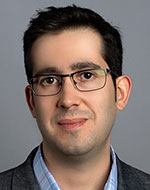 Josep Miquel Jornet is an Associate Professor in the Department of Electrical and Computer Engineering, the director of the Ultrabroadband Nanonetworking (UN) Laboratory, and a member of the Institute for the Wireless Internet of Things and the SMART Center at Northeastern University (NU). He received a Degree in Telecommunication Engineering and a Master of Science in Information and Communication Technologies from the Universitat Politècnica de Catalunya, Spain, in 2008. He received the Ph.D. degree in Electrical and Computer Engineering from the Georgia Institute of Technology, Atlanta, GA, in August 2013. Between August 2013 and August 2019, he was in the Department of Electrical Engineering at the University at Buffalo (UB), The State University of New York (SUNY). He is a leading expert in terahertz communications, in addition to wireless nano-bio-communication networks and the Internet of Nano-Things. In these areas, he has co-authored more than 220 peer-reviewed scientific publications, including 1 book and 5 US patents. His work has received more than 13,900 citations (h-index of 55 as of December 2022). He is serving as the lead PI on multiple grants from U.S. federal agencies including the National Science Foundation, the Air Force Office of Scientific Research and the Air Force Research Laboratory as well as industry. He is the recipient of multiple awards, including the 2017 IEEE ComSoc Young Professional Best Innovation Award, the 2017 ACM NanoCom Outstanding Milestone Award, the NSF CAREER Award in 2019, the 2022 IEEE ComSoc RCC Early Achievement Award, and the 2022 IEEE Wireless Communications Technical Committee Outstanding Young Researcher Award, among others, as well as four best paper awards. He is a senior member of the IEEE and an IEEE ComSoc Distinguished Lecturer (Class of 2022-2023). He is also the Editor in Chief of the Elsevier Nano Communication Networks journal and Editor for IEEE Transactions on Communications.
Josep Miquel Jornet is an Associate Professor in the Department of Electrical and Computer Engineering, the director of the Ultrabroadband Nanonetworking (UN) Laboratory, and a member of the Institute for the Wireless Internet of Things and the SMART Center at Northeastern University (NU). He received a Degree in Telecommunication Engineering and a Master of Science in Information and Communication Technologies from the Universitat Politècnica de Catalunya, Spain, in 2008. He received the Ph.D. degree in Electrical and Computer Engineering from the Georgia Institute of Technology, Atlanta, GA, in August 2013. Between August 2013 and August 2019, he was in the Department of Electrical Engineering at the University at Buffalo (UB), The State University of New York (SUNY). He is a leading expert in terahertz communications, in addition to wireless nano-bio-communication networks and the Internet of Nano-Things. In these areas, he has co-authored more than 220 peer-reviewed scientific publications, including 1 book and 5 US patents. His work has received more than 13,900 citations (h-index of 55 as of December 2022). He is serving as the lead PI on multiple grants from U.S. federal agencies including the National Science Foundation, the Air Force Office of Scientific Research and the Air Force Research Laboratory as well as industry. He is the recipient of multiple awards, including the 2017 IEEE ComSoc Young Professional Best Innovation Award, the 2017 ACM NanoCom Outstanding Milestone Award, the NSF CAREER Award in 2019, the 2022 IEEE ComSoc RCC Early Achievement Award, and the 2022 IEEE Wireless Communications Technical Committee Outstanding Young Researcher Award, among others, as well as four best paper awards. He is a senior member of the IEEE and an IEEE ComSoc Distinguished Lecturer (Class of 2022-2023). He is also the Editor in Chief of the Elsevier Nano Communication Networks journal and Editor for IEEE Transactions on Communications.
Mohsen Razavi, University of Leeds
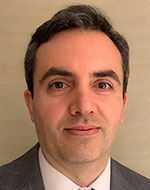 Mohsen Razavi received his B.Sc. and M.Sc. degrees in Electrical Engineering from Sharif University of Technology, respectively, in 1998 and 2000, and his PhD from MIT, in 2006. He was a postdoctoral fellow at the Institute for Quantum Computing at the University of Waterloo until September 2009, when he joined the School of Electronic and Electrical Engineering at the University of Leeds, where he is now a Professor of Quantum Communications. He is a recipient of the Marie-Curie International Reintegration Grant. He organized the first International Workshop on Quantum Communication Networks in 2014. He was the Coordinator of the European Innovative Training Network, QCALL, which aimed at providing quantum communications services to all users. He has authored a book on quantum communications networks in IOP Concise Physics series. His research interests include a variety of topics in quantum optical communications, quantum optics, and quantum communications networks.
Mohsen Razavi received his B.Sc. and M.Sc. degrees in Electrical Engineering from Sharif University of Technology, respectively, in 1998 and 2000, and his PhD from MIT, in 2006. He was a postdoctoral fellow at the Institute for Quantum Computing at the University of Waterloo until September 2009, when he joined the School of Electronic and Electrical Engineering at the University of Leeds, where he is now a Professor of Quantum Communications. He is a recipient of the Marie-Curie International Reintegration Grant. He organized the first International Workshop on Quantum Communication Networks in 2014. He was the Coordinator of the European Innovative Training Network, QCALL, which aimed at providing quantum communications services to all users. He has authored a book on quantum communications networks in IOP Concise Physics series. His research interests include a variety of topics in quantum optical communications, quantum optics, and quantum communications networks.



